Introduction
Social enterprises are businesses that aim to achieve social, environmental, or cultural goals while also making a profit. As mission-driven organisations, social enterprises are well-positioned to develop innovative solutions to pressing societal issues. This article examines ten key areas of social disadvantage in the contemporary Australian context, reflecting on opportunities where social enterprises could drive positive impact.
In recent years, social entrepreneurship has rapidly gained traction globally as a promising model for driving positive change through sustainable business approaches. However, many well-intentioned impact-driven organisations face obstacles that can limit their growth and ability to scale solutions. Challenges often arise in areas like impact measurement, securing startup funding, finding qualified talent, developing revenue streams, and sustaining impact over time.
By adopting targeted strategies and best practices grounded in learnings from successful ventures, emerging social enterprises can proactively set themselves up for increased visibility, stability, and influence within the ecosystem.
10 Key Ways for Social Entrepreneurs
This article provides a roadmap by outlining 10 key ways for social entrepreneurs to maximise their impact and success in 2024 with a focus on critical capabilities like demonstrating impact, leveraging partnerships, piloting innovations, and embracing other proactive approaches, social enterprises can accelerate their growth trajectories and ability to address pressing societal needs.
Housing Stress and Homelessness: With housing unaffordability reaching crisis levels (Mullins, 2023), social enterprises can develop innovative housing models, provide transitional housing, and offer financial literacy programs (Social Finance Australia, 2023).
Mental Health Concerns: Rising youth suicide rates and mental health issues necessitate social enterprises delivering early intervention services, particularly for marginalised groups (Australian Institute of Health & Welfare, 2023).
Domestic Violence: Disturbingly high domestic violence rates highlight the need for social enterprises that empower women, address perpetrator behaviour, and provide trauma-informed support (Australian Bureau of Statistics, 2022).
Indigenous Empowerment: Self-determined, reconciliation-focused solutions across health, justice, education, and the environment hold strong potential for Indigenous-led social enterprises (Reconciliation Australia, 2023).
Asylum Seeker Support: Social enterprises providing employment pathways, healthcare, housing, and legal aid are crucial for displaced people, alongside advocacy efforts seeking policy changes (Global Appeal 2023, n.d.).
Food Security: Social food enterprises can improve affordability, sustainability, and food outputs, while surplus recycling tackles waste and feeds the vulnerable (Foodbank Australia, 2023).
Disability Accessibility: Social enterprises can improve accessibility and inclusion for people with disabilities across diverse areas like infrastructure, transport, and employment (Australian Human Rights Commission, 2023).
Education Equity: To address unequal outcomes, social enterprises can boost school readiness, literacy, digital access, and vocational guidance, empowering disadvantaged students (Australian Council for Educational Research, 2023).
Environmental Justice: The climate crisis disproportionately affects marginalised groups, necessitating social enterprises driving Just Transition solutions and enhancing community resilience (Climate Action Tracker, 2023).
Collaboration and Impact Assessment: Robust impact assessment, knowledge sharing, and collaboration can accelerate social enterprise contributions across these critical areas.
Conclusion
This discussion unveils vast opportunities for social enterprises to tackle complex, interconnected social disadvantages in Australia. By adopting strategies like impact measurement, social procurement, targeted funding, digital tools, partnerships, and knowledge sharing, social enterprises can scale their impact and drive meaningful change.
Support mechanisms like advisory services can further assist organisations in developing implementation roadmaps aligned with their vision. As social entrepreneurship matures, it can become a powerful force for good, and aspiring change-makers can leverage the approaches outlined here to maximise their visibility, stability, and influence in driving social innovation.
One10 Group advisory services can further assist organisations with assessing their needs and developing targeted implementation roadmaps tailored to their unique vision and context. As ethical, community-centred business continues maturing into a powerful lever for good globally, social entrepreneurs must remain focused on optimising contributions through intentional strategies grounded in real-world learning.
By adopting some of the approaches outlined, aspiring change-makers can set their enterprises up for increased visibility, stability, and influence driving social innovation.
One10 Group offers customised advisory services, access to networks and practical resources so you can focus your energy where it matters - enabling real-world impact.
To learn more about how we can help assess your needs and develop targeted strategies for growth in line with your vision please reach out. Together we can work towards mainstreaming social entrepreneurship, multiplying success stories, and evolving business into a transformative force for good.
References
Australian Bureau of Statistics. (2022, August 31). Estimated Counts of Multiple and Repeated Victimisation of Assaults on People, Australia, 2021. https://www.abs.gov.au/statistics/people/crime-and-justice/recorded-crime-victims/2021
Australian Council for Educational Research. (2023, March 15). Equity in Australian Schooling. https://www.acer.org/au/
Australian Human Rights Commission. (2023, July 12). National Disability Strategy. https://humanrights.gov.au/our-work/national-disability-strategy-australian-human-rights-commission-submission
Australian Institute of Health & Welfare. (2023, September 27). National Suicide Monitoring System: Data Insights. https://www.aihw.gov.au/suicide-self-harm-monitoring
Climate Action Tracker. (2023, November 16). Australia. https://climateactiontracker.org/countries/australia/
Foodbank Australia. (2023, July 1). Hunger Report 2023. https://reports.foodbank.org.au/foodbank-hunger-report-2023/
Global Appeal 2023. (n.d.). Global Focus. https://reporting.unhcr.org/globalappeal-2023
Mullins, J. (2023, October 26). Australia's housing affordability crisis and what needs to change. ABC News. https://www.abc.net.au/news/2023-09-02/housing-affordability-lowest-level-in-30-years-proptrack-data/102804908
Reconciliation Australia. (2023, November 9). Narrm Orom: Reconciliation Week 2023. https://nrw.reconciliation.org.au/
Financial Wellbeing and Capability Activity | Department of Social Services, Australian Government. (n.d.). https://www.dss.gov.au/communities-and-vulnerable-people/programmes-services/financial-wellbeing-and-capability


